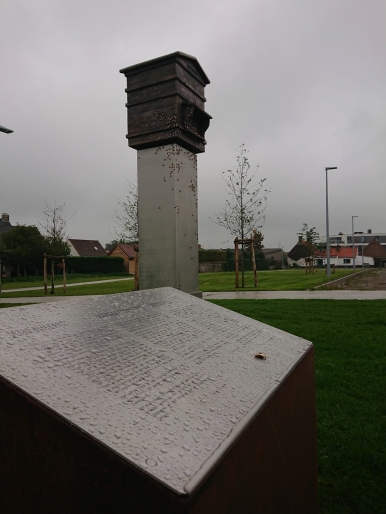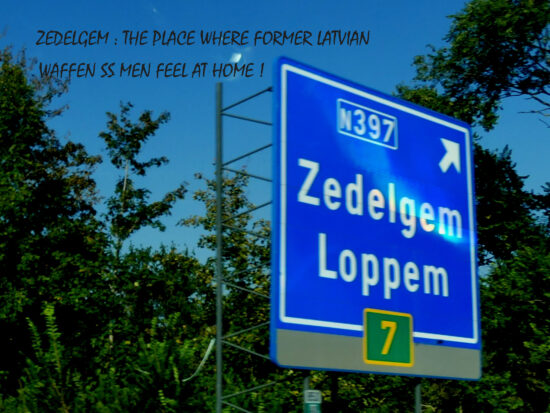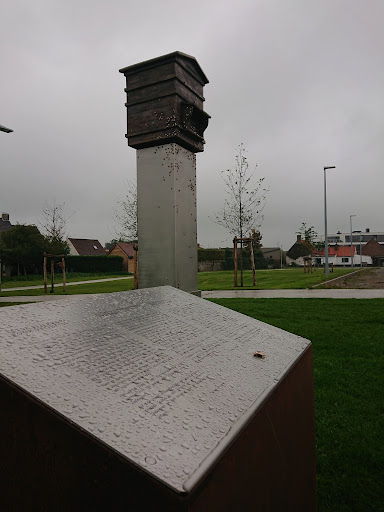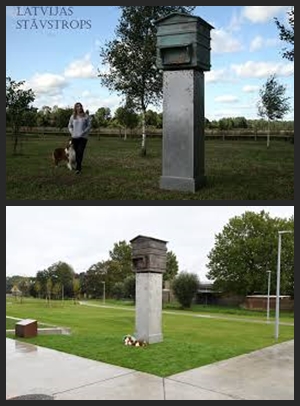BOOKS | FRANCE | LITHUANIA
BOOKS
by Roland Binet (De Panne, Belgium)
◊
◊
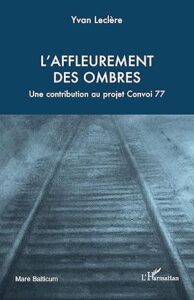 On July 1944, Convoy 77 left the internment camp of Drancy in France, three weeks before the liberation of Paris. The destination was Auschwitz-Birkenau. Eight Litvaks living in France were deported, of whom only one survived the war. The association of the deportees of Convoy 77 would receive the sponsorship of the French Presidency which commissioned schools in France and abroad to research and reconstruct their lives in France and their last days. The project was to “put adolescents in charge not of a sepulchral memory but of the reconstitution of life paths more than death paths.”
On July 1944, Convoy 77 left the internment camp of Drancy in France, three weeks before the liberation of Paris. The destination was Auschwitz-Birkenau. Eight Litvaks living in France were deported, of whom only one survived the war. The association of the deportees of Convoy 77 would receive the sponsorship of the French Presidency which commissioned schools in France and abroad to research and reconstruct their lives in France and their last days. The project was to “put adolescents in charge not of a sepulchral memory but of the reconstitution of life paths more than death paths.”
The project was initiated by a class at the French Lyceum in Vilnius before the Covid-19 epidemic, under the direction of Professor Yvan Leclère, author of a book, Soviet Hegemony. These enthusiastic students began a search on the internet spanning several continents, lasting several years, to piece together why and how these eight Lithuanian Jews had gone to France, how they had lived there and how they came to become ensnared by the Nazis, and finally, sent to their death in Auschwitz. This book can be read as a journal — at times a thriller — that details, sometimes on a daily basis, what progress had been reached in discovering the whereabouts of the eight Lithuanian Jews and also of members of their families who had escaped capture by the Nazis or had been living abroad — and out of danger — at the time these eight were caught.
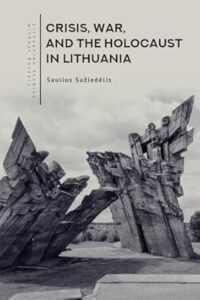
 Ponar near Vilna (Yiddish Ponár, Polish Ponary, today’s Paneriai outside Vilnius, capital city of Lithuania). It is around ten kilometers (six miles) southwest of Vilnius city center. This caught his attention and he decided to write a book about this heroic feat. The main titl
Ponar near Vilna (Yiddish Ponár, Polish Ponary, today’s Paneriai outside Vilnius, capital city of Lithuania). It is around ten kilometers (six miles) southwest of Vilnius city center. This caught his attention and he decided to write a book about this heroic feat. The main titl
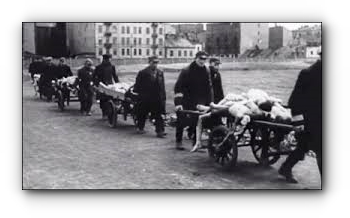
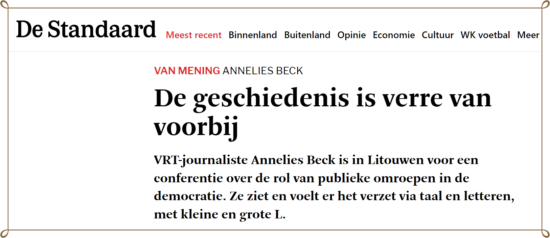
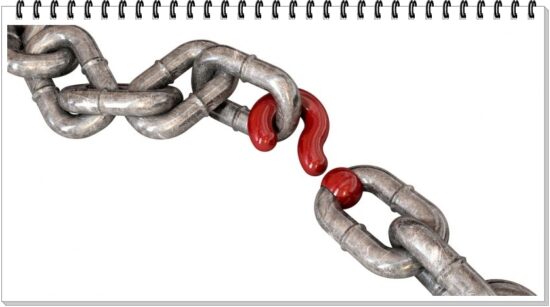 There is, however, disturbingly, quite a stupendous missing link in this abridged history of Lithuania in the twentieth century. Where had the quarter million Jews (the figure on the eve of the Holocaust) of the country disappeared to “overnight” (as centuries go), during that fateful century? Had there ever been a Jewish minority in Lithuania at all? When I looked at the author’s pedigree, I understood why the Jews had not played any role of significance in his biased dialectical discourse. Joren Vermeersch is a historian (of sorts) and an accomplished author. He is also a representative (stand-in, as we call it) for the Belgian House of Representatives, for the “N-VA.” This is the nationalist Flemish party that has its historical roots in the collaboration with the Nazis during World War II. The party that has systematically fought for an amnesty for Nazi collaborators. The party in which the grandparents or parents of some of the present actual leaders had been condemned by the Belgian State for collaboration with the enemy. Nobody is guilty of sins of their ancestors, but when there is a pattern of such pedigree being considered a great plus for current leadership, and that pedigree is subtly glorified rather than disowned, we have a current moral problem that merits discussion in the public square.
There is, however, disturbingly, quite a stupendous missing link in this abridged history of Lithuania in the twentieth century. Where had the quarter million Jews (the figure on the eve of the Holocaust) of the country disappeared to “overnight” (as centuries go), during that fateful century? Had there ever been a Jewish minority in Lithuania at all? When I looked at the author’s pedigree, I understood why the Jews had not played any role of significance in his biased dialectical discourse. Joren Vermeersch is a historian (of sorts) and an accomplished author. He is also a representative (stand-in, as we call it) for the Belgian House of Representatives, for the “N-VA.” This is the nationalist Flemish party that has its historical roots in the collaboration with the Nazis during World War II. The party that has systematically fought for an amnesty for Nazi collaborators. The party in which the grandparents or parents of some of the present actual leaders had been condemned by the Belgian State for collaboration with the enemy. Nobody is guilty of sins of their ancestors, but when there is a pattern of such pedigree being considered a great plus for current leadership, and that pedigree is subtly glorified rather than disowned, we have a current moral problem that merits discussion in the public square.